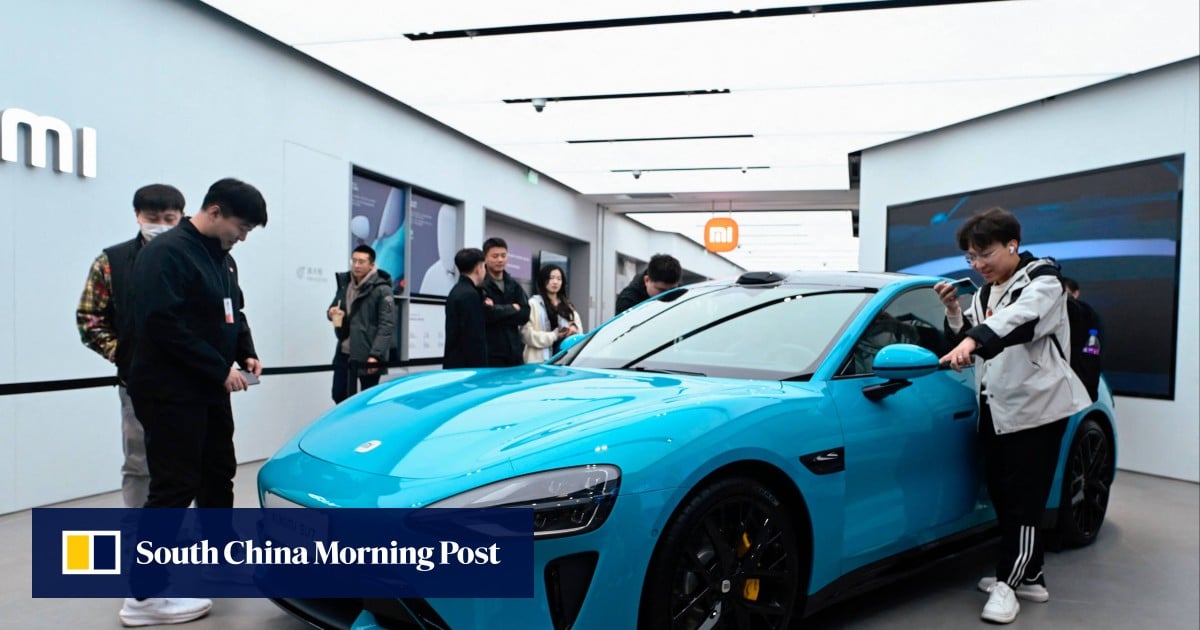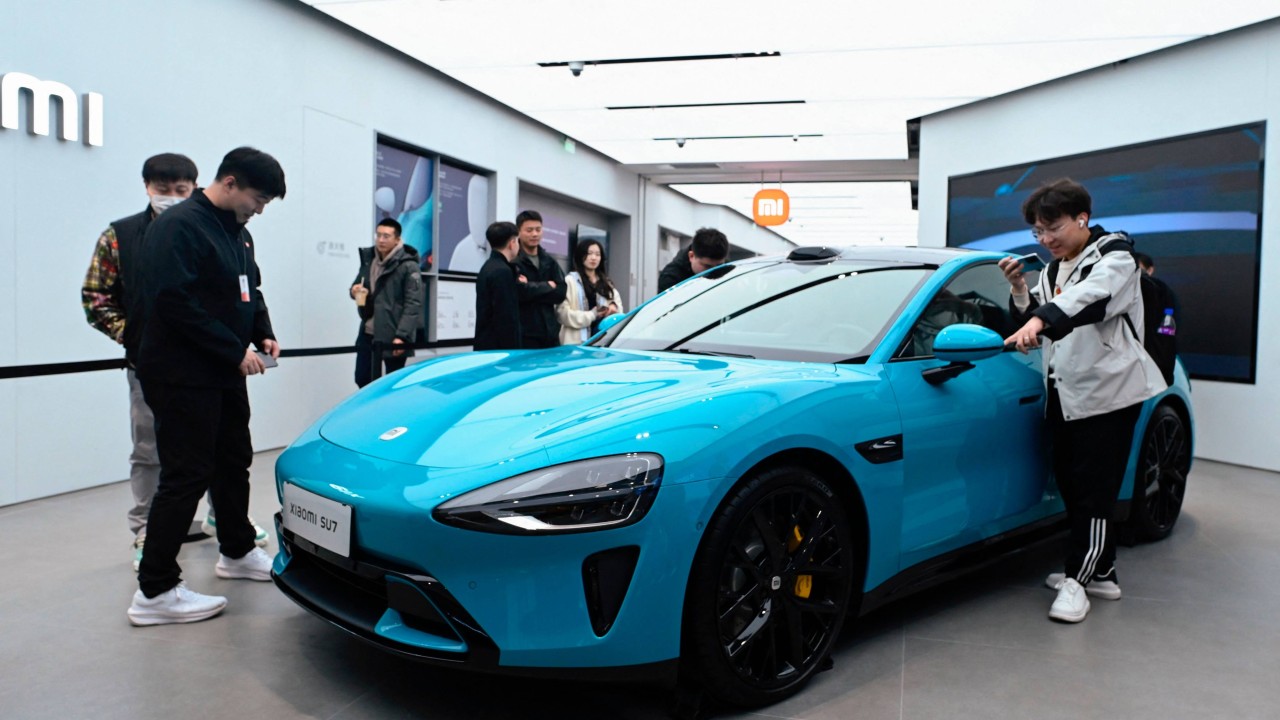
29 Mar Smartphone maker Xiaomi makes waves in crowded EV market with its keenly-priced SU7 model

Xiaomi has got off to a racing start in the country’s crowded electric vehicle (EV) market, after saying it sold around 50,000 vehicles within half an hour of the launch of its new model, the SU7.
The Chinese smartphone and gadget maker, which has been competing with Apple for years, now has its sights set on Elon Musk’s Tesla.
Lei Jun, Xiaomi’s billionaire chairman, chief executive and founder, unveiled the new SU7 at a ceremony in Beijing on Thursday with lower-than-expected pricing, as he takes on an industry crowded with hundreds of brands.
The new EV has three versions – the SU7, SU7 Pro and SU7 Max – and has a starting price of 215,900 yuan (US$29,867). The launch is expected to deepen a price war at a time when BYD, Xpeng, Nio and Tesla are fighting to win over Chinese consumers.
Xiaomi, which has survived brutal competition in the smartphone market with value builds, is well-placed, analysts say.
“Xiaomi has lowered the floor for global EV pricing even further while significantly raising the stakes with the feature rich, yet arguably affordable SU7,” said Tu Le, managing director of consultancy Sino Auto Insights.
Xiaomi surprises with lower-than-expected pricing on new EVs
Xiaomi surprises with lower-than-expected pricing on new EVs
Xiaomi has built up consumer interest in its new SU7 by carefully releasing details on the new model but holding back pricing until the launch. Lei, 54, was dressed more like Elon Musk at Thursday’s event, in casual corporate attire, in contrast to the Steve Jobs inspired jeans and T-shirts he has worn at smartphone unveilings.
The SU7’s unveiling, which was broadcast live to millions, was a huge live-streaming event, with pre-orders breaking through the 10,000 barrier within 4 minutes, according to the company.
Lei said the new model, which has a 700-kilometre battery life, is benchmarked against Tesla’s Model 3 and claimed 90 per cent of its specifications surpass the Tesla model. Meanwhile, the entry price of the SU7 is about 36,000 yuan below the starting price of the Model 3.
Competition in the world’s biggest EV market is intensifying amid slowing growth in EV purchases, which were previously boosted by generous government subsidies.
Car buying sentiment in China has dipped amid a flagging post-Covid economy.
According to China’s Passenger Car Association, annual sales of China’s new energy cars, including EVs and plug-in hybrids, are projected to grow 22 per cent in 2024 to reach 11 million vehicles, which is 14 per cent lower than the growth rate of 36 per cent in 2023 when 7.7 million units were sold.
